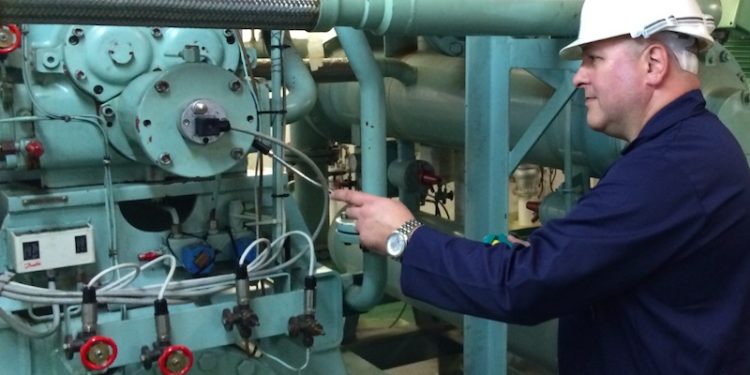The cost of refrigerant and regulatory compliance in the next five years will become as commercially important to vessel operations as regulations governing sulphur emissions are today, warned Robert Chesters, managing director of Oceanic Technical Solutions.
‘If shipowners fail to make their plants gas-tight, they could face refrigerant cost increases of up to 20% when stringent EU Regulations on Fluorinated Greenhouse Gases (F-Gas) enter in to force in 2020,’ he said.
Between now and 2030 there will be a phased reduction of the amount of virgin ozone-depleting hydrochlorofluorocarbons (HFC) placed onto the market. HFCs with a global warming potential (GWP) of 2500 or more will be prohibited from January 2020 in new systems and for topping up of existing systems, although recycled refrigerants will be permitted until 2030.
‘Compared to the outlawed R22 refrigerant, which cost around US$3/kg, new refrigerants, such as R404a, can be as much as $25/kg. But this is likely to be dwarfed by the cost of the next generation hydrocarbon-type refrigerants manufacturers are developing to meet the new requirements, making refrigerant a commodity that really should be retained,’ he said.
‘Owners must be aware that refrigerant is not a consumable in the same way as, say, lubricating oil, and should not need to be replaced. If systems are being constantly recharged then there’s a problem.’
‘Owners do need to look now at how the F-Gas rules will affect the bottom line. If they are already spending thousands of dollars on refrigerant, then this needless expense will certainly increase by 2020. But if refrigerant loss is not dealt with the cost of compliance will far outweigh the amount owners are currently paying for refrigerant.’
With the anticipated increase in the cost of refrigerants the only guaranteed way to reduce refrigerant costs is containment. Owners can do a lot to reduce their refrigerant consumption by installing fixed leak detection systems, carrying out routine leak testing onboard and implementing full refrigerant reduction programmes.
He commented that recent marine refrigeration inspections carried out by Oceanic engineers suggests in some cases even basic maintenance is not being carried out.
‘We found that some vessels were experiencing repeat failures and a significant loss of refrigerant to atmosphere due simply to worn valve gaskets and O rings, while other leaks were reoccurring because temporary repairs were being incorrectly regarded as a permanent fix.’









